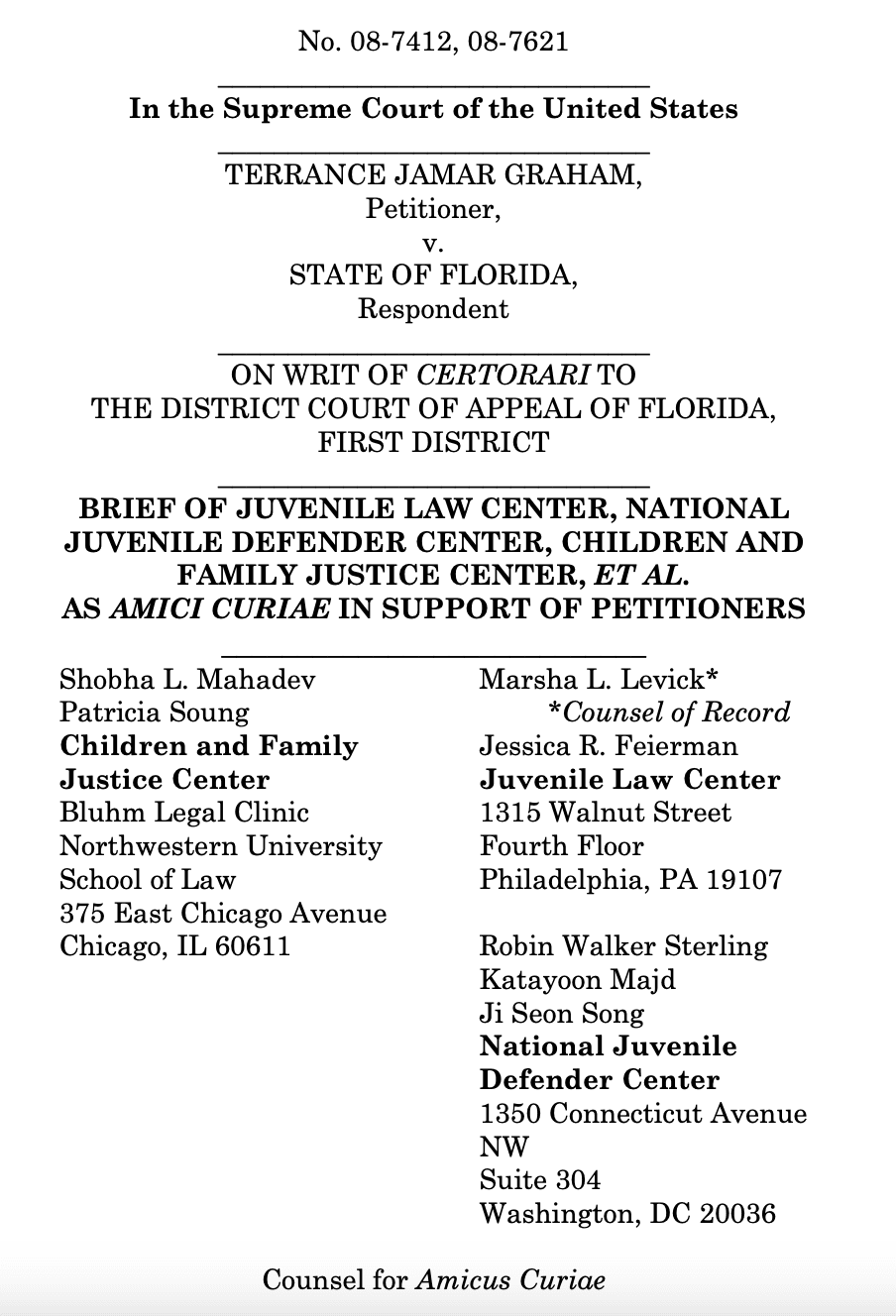
Summary of Argument
Petitioners challenge the constitutionality under the Eighth Amendment of an irrevocable sentence of life without parole for youthful offenders who committed non-homicide crimes while under the age of eighteen. Amici urge this Court to find these sentences unconstitutional.
This Court’s holding in Roper v Simmons, striking the juvenile death penalty as cruel and unusual punishment, was the Court’s most recent application of the Eighth Amendment to juveniles and reflects a decades-long commitment to considering the special characteristics of youth when construing their rights under the Constitution. While the Court’s solicitude for youth is particularly pronounced in cases addressing children’s involvement in the juvenile and criminal justice systems, children’s unique developmental status has repeatedly been taken into account in determining the scope and breadth of their rights under various provisions of the Constitution that reach into the civil arena as well. This doctrinal approach to determining children’s rights under the Constitution must also govern the Court’s analysis here.
Additionally, while Roper adhered to this Court’s special consideration of youth, its holding was enriched and informed by scientific and developmental research that confirmed, inter alia, the transitory nature of the characteristics of youth, their diminished criminal culpability and their capacity for change and rehabilitation. This research informs the outcome in these appeals as well.
Lastly, this Court’s Eighth Amendment jurisprudence proscribes penalties that do not accord with human dignity. Looking beyond legislative indicia, this Court must exercise its own independent judgment in determining the constitutionality of criminal punishments under the Eighth Amendment. Such independent judgment must consider the diminished culpability of the petitioners and the fact that these life without parole sentences fail to serve any legitimate penological purpose.
This Court’s historical youth jurisprudence, informed by research and buttressed by the Court’s independent consideration of whether a sentence of life without parole imposed on adolescents comports with human dignity, collectively prohibit the imposition of these sentences on youth who have been convicted of non-homicide crimes committed while under the age of eighteen.